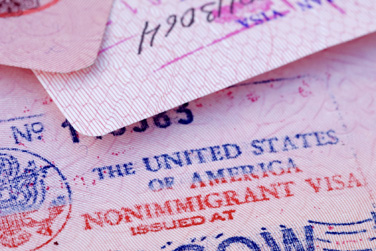|
|
|
|||||||||
|
Facilitating Business Travel Crucial to U.S. Investment A paper recently published by the Department of Commerce’s Invest in America initiative shows how U.S. policy on visas and travel mobility in general affects the ability to attract foreign direct investment to the United States. by Aaron Brickman Foreign investors view the ease with which they can travel to the United States as a key indicator of how easy it will be to make or administer an investment. Under the State Department’s Visa Waiver Program, many nationals from countries with the largest inflows of foreign direct investment (FDI) into the United States do not require a visa.
But some recent trends—including widespread misperceptions about the difficulty of obtaining a visa, a significant drop in the number of visas issued during the past five years, and the adoption after 2001 of a variety of new statutory and regulatory requirements for foreign nationals seeking visas for entry into the United States—make it clear that the visa process for legitimate business visits needs to improve. Secretary of Commerce Carlos M. Gutierrez released a policy paper on that topic, titled “ Visas and Foreign Direct Investment: Supporting U.S. Competitiveness by Facilitating International Travel,” at the annual meeting of the Organization for International Investment held in Washington, D.C., on November 13, 2007. The paper details a number of specific steps that can be taken to improve the visa and travel facilitation process. Visas and FDI An important aspect of visa and travel facilitation is the effect on jobs created from FDI. This FDI dimension of business travel and mobility emerged in connection with President George W. Bush’s “open economies” statement on May 10, 2007. The statement noted the fundamental importance of international investment to the U.S. economy. The timely availability of visas is, in fact, a topic that is always front and center whenever FDI issues are discussed. Role of FDI in U.S. Economy FDI plays a major role in the U.S. economy as a key driver of the economy and as an important source of innovation, exports, and jobs. Foreign firms employ more than 5.0 million U.S. workers through their U.S. affiliates, and they create more than 4.5 million indirect jobs. In addition, foreign firms account for 10 percent of U.S. capital investment, 15 percent of annual research and development in the United States, and almost 20 percent of U.S. exports. Because the U.S. share of global FDI inflows has declined since the late 1990s and because global competition to attract FDI has grown more intense, the United States must strive to maintain its ability to attract FDI. In 2007, the Commerce Department launched the Invest in America initiative to address concerns by the international investment community and to promote FDI flows into the United States. Debunking Myths about Visas The recent Commerce Department policy paper states that the presence or perception of delays in obtaining the necessary visas can give international investors the impression that it may be difficult to finalize or oversee an investment in the United States. Such myths and misperceptions regarding the difficulty of the U.S. visa process must be promptly debunked to prevent an inaccurate assessment of the U.S. system. For example, people from countries such as Brazil, China, and India believe that it is extremely difficult to obtain a visa to the United States. However, the majority of visa applicants in those countries do receive visas. In 2006, more than 1.1 million non-immigrant visas were issued for those three countries alone—almost 19 percent of all non-immigrant visas issued worldwide in that year. Other Areas of Focus In addition to addressing common misperceptions about business travel to the United States, the paper makes suggestions regarding other areas where additional attention is needed. Those areas include the following: • Focus on international investment. Efforts to address specific visa-related concerns associated with FDI need to be encouraged. The international investment community has indicated that it would support developing a non-immigrant investor visa within the State Department’s “E” category, which is already available to international investors outside the bilateral treaty process. • Expand registered business traveler facilitation programs. U.S. embassies should continue to promote business visa facilitation programs and to draw from the models of successful efforts, such as the Business Visa Facilitation Program that has been implemented by the U.S. embassy in Beijing with the cooperation of the American Chamber of Commerce in China. • Strengthen public information efforts. There is an ongoing need to correct misperceptions about visas and U.S. openness to FDI. It is important to target business travelers, through consular officers who meet with travelers and speak at business events, to dispel myths and to encourage early visa applications that allow sufficient processing time. • Expand the use of new technology. The use of Internet-based and other new technologies should be expanded where appropriate. Internet-based programs should continue to move toward a comprehensive e-commerce model that allows appointments, applications, and payments to be made entirely online. • Establish clear performance standards. Clear and meaningful productivity measures for immigration, visa, and admission processes should be established. Those standards can provide numbers against which the effectiveness of the visa application system can be measured and performance improvements sought. The human capital that is attracted to the United States brings many benefits to the economy. The steps recommended by the Commerce Department clearly point the way toward how to best balance the concerns of security and commerce in the visa process. Aaron Brickman is the director of Invest in America.
|
|
